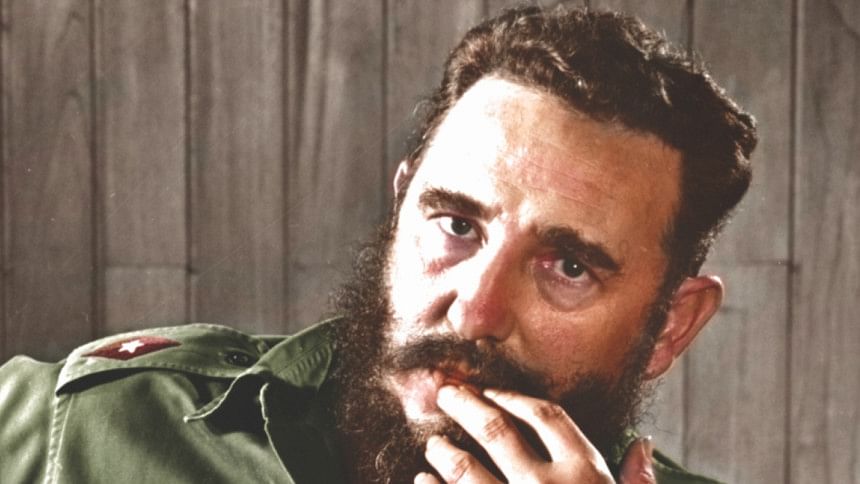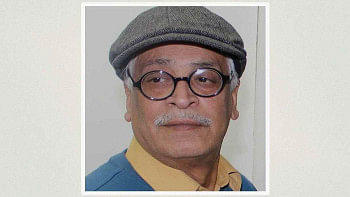GOODBYE El Comandante

The son of a wealthy landowner, Fidel Castro turned his back on a life of privilege to lead a left-wing revolution in Cuba that endured for decades and was shaped by his political cunning, keen sense of destiny and boundless ego.
A towering figure of the second half of the 20th Century, he stuck to his ideology beyond the collapse of Soviet communism and remained widely respected in parts of the world that had struggled against colonial rule.
At once idealistic and pragmatic, sharply intelligent and reckless, he was seen by critics as a stubborn bully who banned opposition parties.
But admirers saw a visionary who stood up to US domination of Latin America, brought healthcare and education to the poor, and inspired socialist movements across the world.
The historic revolutionary leader died Friday aged 90, after defying the US during a half-century of iron-fisted rule and surviving the eclipse of global communism.
His younger brother, President Raul Castro, announced the news shortly after midnight (0500 GMT yesterday) but gave no details of the cause of death.
Raul, who took power after Castro was hospitalised in 2006, announced the news on national television just after midnight Friday (0500 GMT Saturday).
"The commander in chief of the Cuban revolution died at 22:29 hours this evening," Raul said in a solemn voice.
"Ever onward, to victory," he said, using the slogan of the Cuban revolution.
"In compliance with Comrade Fidel's expressed will, his remains will be cremated early in the morning" yesterday.
The government yesterday decreed nine days of mourning.
Castro's ashes will be buried in the southeastern city of Santiago on December 4 after a four-day procession through the country.
Cubans will likely forever remember where they were when Castro's death was announced. The music stopped across the dance-happy city and people rushed to awaken loved ones with the news.
Parties shut down and the bustling streets emptied after Raul made the announcement on state television.
"Everyone was stunned. It was a very sad moment," said Yaimara Gomez, who was working in a hotel at the time.
Unlike various occasions over the years, this time it was not a hoax: the man most Cubans grown up with as their country's leader had died.
'SYMBOL OF AN ERA'
Before leading the 1959 revolution that propelled Cuba toward communism and onto the Cold War stage, Castro saw greatness in himself.
From an early age, he admired history's boldest figures, particularly Alexander the Great, and believed he and his rebels were part of that tradition.
"Men do not shape destiny. Destiny produces the man for the moment," he said in 1959.
Castro toppled the unpopular US-backed dictator Fulgencio Batista by uniting a disparate opposition and outsmarting a bigger, better-equipped Cuban military.
His alliance with the Soviet Union put him at the centre of the Cold War, most notably when the 1962 Cuban missile crisis took the world to the brink of nuclear war.
He was a global celebrity, his beard, military fatigues and big Cuban cigars making him instantly recognisable.
He owed his prominence in part to geography. Moscow helped him build socialism by giving him billions of dollars worth of aid and favourable trade, from oil to tractor parts.
But Castro also mined Cuban nationalism and Latin American pride, stirring resentment of US power and influence.
He managed to preserve his revolution despite constant US hostility even when Cuba reeled from the collapse of the Soviet Union in the early 1990s, showing the vigour of a man who intended to die in office.
Instead, almost killed by a serious intestinal illness, he had to step aside in 2006 and he formally handed over to Raul in 2008.
In his final years, Castro wrote opinion columns for Cuba's state media but was rarely seen. His famously long speeches gave way to silence, at least in public, and comfortable track suits replaced the stiff black boots and crisp military attire.
On December 17, 2014, Raul cut a deal to restore diplomatic ties with the US. Six weeks later, Fidel offered only lukewarm support, raising questions about whether he approved of ending hostilities with his longtime enemy.
PERMANENT STRUGGLE
Known by the militaristic title of "El Comandante," in some ways Castro was always replaying the exhilaration of revolt, exhorting Cubans to fight one battle after another, from confronting US hostility to boosting potato production.
He survived numerous assassination attempts and outlasted nine US presidents in power, seizing control of Cuba while Dwight Eisenhower occupied the White House and stepping down during George W Bush's second term.
A magnificent orator who instinctively altered his cadence to fit the moment, he re-trod history and delved deep into detail about Cuban independence heroes, plans to "perfect" the revolution and the declared evils of US imperialism.
Tall and physically commanding, fastidious in his attire, he often built to a crescendo of indignation, gesturing firmly with long-fingered, well-manicured hands.
"We shall endeavour to be brief," he told the United Nations General Assembly in 1960, then set a record for UN speeches by talking for nearly 4-1/2 hours.
EARLY YEARS
Born on August 13, 1926, Castro grew up as a privileged son on his father's plantation in the eastern village of Biran, where his playmates were children of impoverished workers living in thatched huts with dirt floors.
He attended the Jesuit-run Belen School in the capital and then studied law at the University of Havana.
He took part in an aborted 1947 plan to overthrow Dominican Republic dictator Rafael Leonidas Trujillo and was at a youth conference in Colombia when riots broke out and some 2,000 people died.
After law school, he decided to run for Congress in 1952. When Batista staged a coup and halted the elections, Castro began plotting armed rebellion.
In 1953, he led a raid on the Moncada barracks in the eastern city of Santiago de Cuba. Dozens of followers died and he, Raul and others were captured and imprisoned.
"History will absolve me," he declared at his trial.
Pardoned in 1955, he went into exile in Mexico where he met Argentine revolutionary Ernesto "Che" Guevara. Together with Raul, they trained a rebel band that in 1956 returned to Cuba aboard an overcrowded yacht called Granma.
Ambushed at landing by government troops, only 12 of the 82 rebels on board made it to the rugged Sierra Maestra mountains.
Castro denied Batista's claims that he was a communist but decades later he told Spanish journalist Ignacio Ramonet in a book "100 hours with Fidel" that by 1952, "I was already a convinced Marxist-Leninist."
Whatever the evolution of his views on communism, he was determined to throw off American influence in Cuba. When US-supplied aircraft bombed his rebels in 1958, he vowed revenge.
US ENEMY
Washington viewed him as a potential enemy even before his rebel army forced Batista to flee Cuba on New Year's Day, 1959.
It took just two years for the relationship to unravel as Castro nationalised swathes of the economy and introduced a broad agrarian reform. Thousands escaped the island, starting what became a bitter bulwark of opposition in Florida.
In April 1961, when his military crushed a CIA-backed invasion by Cuban exiles at the Bay of Pigs, he declared Cuba socialist and allied himself with the Soviet Union.
Moscow put nuclear missiles on the island in 1962, touching off a 13-day superpower showdown known as the Cuban missile crisis.
The US imposed its trade embargo on Cuba in 1962 and the CIA admitted trying to kill Castro in the early years of his rule.
Plots or plot ideas included trying to get Castro to smoke a poisoned cigar and taking advantage of his love of diving with an exploding seashell, or poisoning a diving suit.
Castro revelled in his status as an elusive target.
While the embargo was economically devastating, it allowed Castro to shift blame for chronic economic problems away from the system he built and onto the United States.
REVOLUTION
In a country that was prosperous by Latin American standards but riven by inequality and illiteracy and with an unsavoury reputation as a brothel and gambling-rich playground for Americans, Castro sought to build a socialist society.
His government trained thousands of doctors and provided free schooling, changes that have endured well into the 21st century, even as the state's role in the economy was reduced in recent years.
Those gains came at considerable cost to personal freedoms. Dissent was stifled in a one-party state with no free press, and the state's long arm reached deep into Cuban lives.
Throughout, Castro was a mentor to left-wing leaders and a friend to intellectuals such as Nobel laureate Gabriel Garcia Marquez.
He helped Marxist guerrillas and revolutionary governments around the world, sending troops to Angola in the 1970s to support a left-wing government over the initial objections of Moscow.
Cuba helped defeat South African insurgents in Angola and win Namibia's independence from South Africa in 1990, adding pressure on the apartheid regime.
After Nelson Mandela was freed from prison in 1990, he repeatedly thanked Castro. The Cuban leader was also a hero to Sandinista rebels who took power in Nicaragua in 1979.
COMMUNIST OUTPOST
After the Soviet bloc collapsed in 1991, it seemed Castro's communist rule would not survive.
Cubans endured prolonged power cuts and shortages of food and basics such as soap. Ever stubborn, Castro implored them to endure the "special period" for the sake of the revolution.
He undertook some reforms, allowing foreign investment and mass tourism from Canada and Europe, and tapping exile dollars by allowing Cubans more contact with their relatives abroad.
He also let the most disgruntled leave in a chaotic exodus of makeshift boats that forced US President Bill Clinton to agree to more orderly migration.
Castro was quick to see a potential ally in late Venezuelan leader Hugo Chavez and courted him well before he won power. When Chavez took office in 1998, Castro had a new source of cheap oil, providing a huge boost to Cuba's economy.
Little was known about his personal life.
He lived in a compound in western Havana and had nine children with five women including five sons with his common-law wife Dalia Soto del Valle, who lived with Castro at the end.
His eldest son Fidel Castro Diaz-Balart is a Soviet-trained nuclear scientist from the Cuban leader's only acknowledged marriage.
Daughter Alina Fernandez, whose mother was a Havana socialite who Castro had an affair with while underground in the 1950s, escaped from Cuba disguised as a tourist in 1993 and she is a vocal critic of her father.
Castro never allowed statues of him to be erected or streets to be named after him, saying he did not want a cult of personality. Nevertheless, the cult was everywhere. His image and words were posted on billboards and his name was invoked at every public event.
Castro, who always prickled at suggestions of cruelty, rejected the term. "I am a kind of spiritual leader," he said.
[From Reuters, AFP]

 For all latest news, follow The Daily Star's Google News channel.
For all latest news, follow The Daily Star's Google News channel. 



Comments